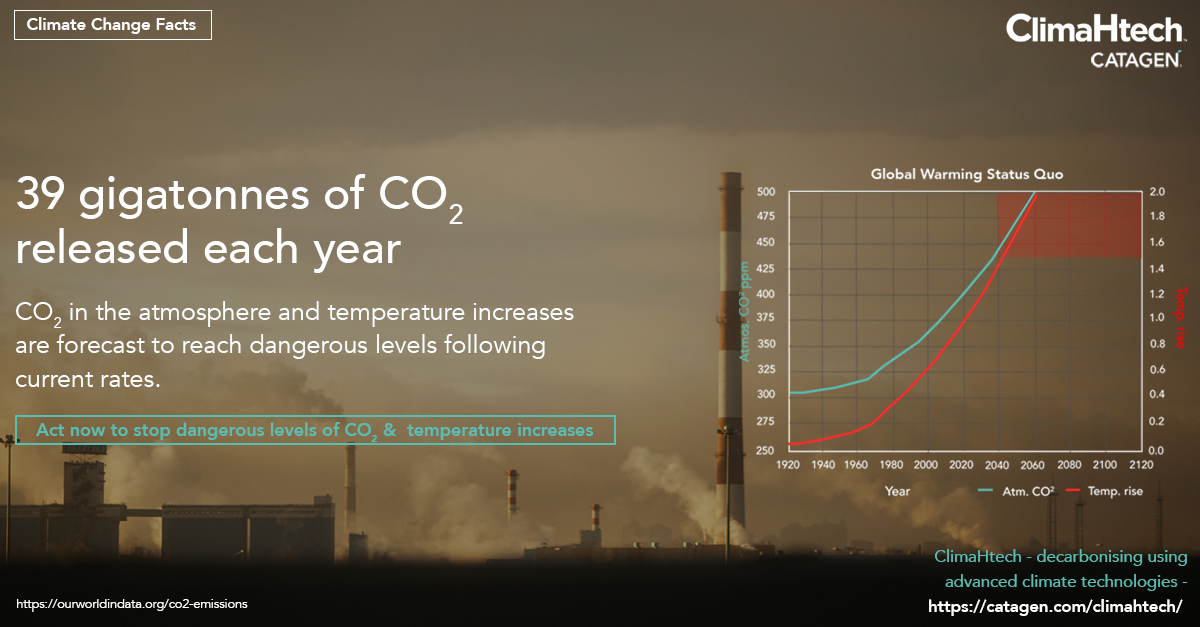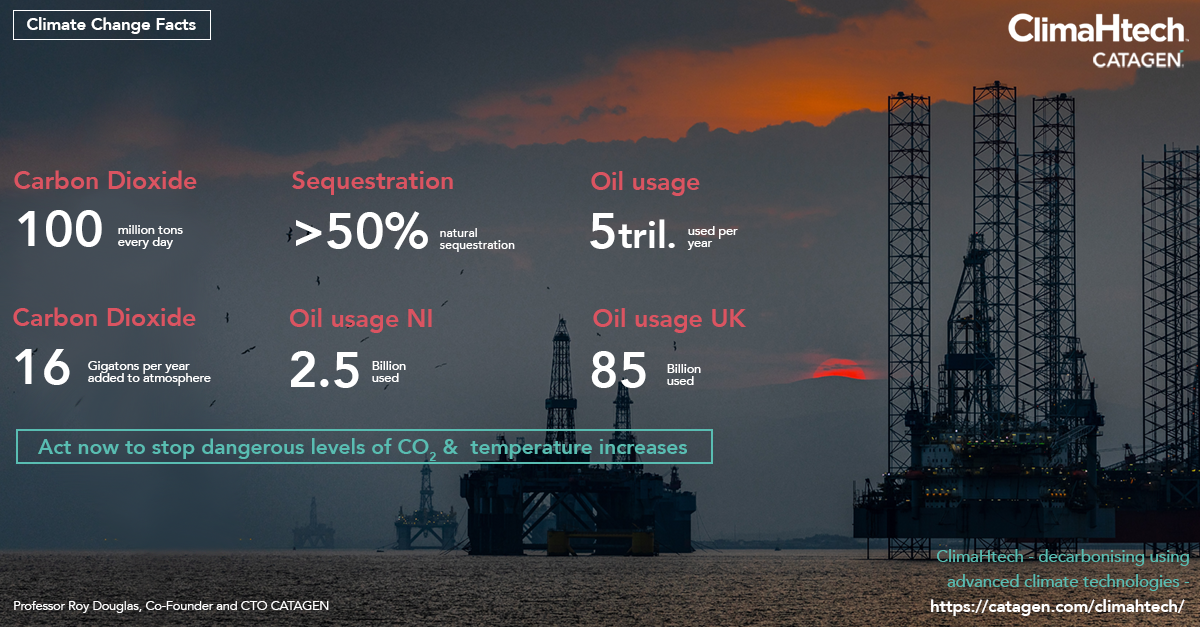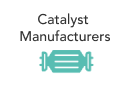
By Professor Roy Douglas, CTO & Co-founder
The debate around climate change is becoming evermore intense. I think that we can all agree that there are changes in our climate: more dramatic events such as hurricanes, the polar ice caps shrinking, sea levels rising and ocean temperatures increasing. These coincide with rising global temperatures and increasing levels of CO2 in the atmosphere, so it is logical that these are connected – caused by human activity and emissions from fossil fuels.
Last year, over 5 trillion (5 million million) litres of liquid fuels (petrol, diesel, jet fuel, etc) were used worldwide, releasing about 15 gigatonnes (billion tonnes) of carbon emissions (CO2) into the atmosphere. Total CO2 emitted worldwide was 39 gigatonnes (Gt), over 100 million tonnes per day, and the rise in CO2 present in the atmosphere was about 16 gigatonnes. The difference is natural sequestration of CO2 by forests, oceans, etc, but we cannot rely on the natural world saving us forever. In the UK alone, 85 billion litres of liquid fuels were consumed so we are all contributing to the problem.


If we consider how this is affecting the atmosphere, there will be a large rise in CO2 concentration over the next few decades. Currently, CO2 concentration is at 415ppm, with about 3,200Gt by mass in the atmosphere. This is predicted to rise to over 480 ppm, 4,000Gt, by 2050 if we continue to use fossil fuels at the current accelerating rate. This, in turn, will give even higher average temperatures, predicted to be around 2ºC above the stable levels of the early 20th century. This does not seem much but small rises in global temperature will facilitate further climate change, leading to even more extreme weather: this means more rainfall in areas such as Ireland and more drought in the stricken areas of Africa.
Our climate is changing due to human activity and, in particular, due to the use of fossil fuels. We need to change how we look after our environment as a legacy for future generations. In case you think this is an impossible task, the answer is in renewable energy, wind and solar, and how we use these sustainable resources. Let me leave you with one thought: 3 days of solar irradiation is equivalent to all the fossil fuel energy resources in the world. So the answer is blowing in the wind and shining in the sun.
CATAGEN’s purpose is to clean and decarbonise the air. Find out more on how we are decarbonising industry using renewable energy to create renewable fuels:
Bio – Professor Roy Douglas
Roy is Chief Technical Officer, a Director and Co-Founder of Catagen Ltd. He is Professor Emeritus of IC Engines Technology in the School of Mechanical and Aerospace Engineering at Queen’s University, Belfast. He has over 40 years of experience in the areas of engine research and development, systems modelling and automotive after-treatment. For the past 25 years, his research has concentrated on improving the performance of automotive after-treatment systems, with particular emphasis on applied

catalysis at the interface between chemistry and engineering. He is keenly interested in improved air quality through application of ultra-low emissions technology on the roadmap to zero tailpipe emissions for the automotive industry.
He has published over 100 technical papers with 4 granted patents: he has supervised over 40 PhD research students and over 20 Post-doctoral research fellows; he has research earnings of over £25 million.
He was a senior member of the School of Mechanical & Aerospace Engineering and a member of the school management team. He is currently a member of the Automotive Council Technical Committee in the UK and a member of the International Advisory Board for the Virtual Vehicle Research Centre at TU Graz, Austria.
More Content:











